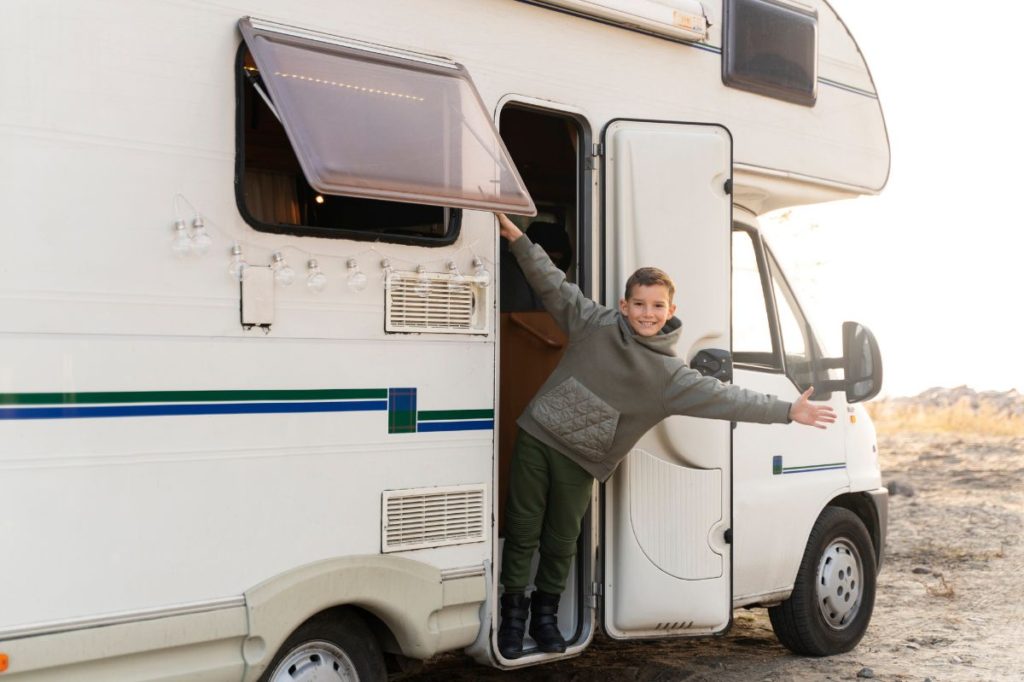RV travel is the perfect way to enjoy your vacation in a safe and self-contained way. They allow you to travel, eat and sleep all onboard, which means limited interactions with others. You can enjoy your time out in nature with your family or close friends and even your pets, and feel relax while doing so.
But the RV travel has one glaring drawback: the stock house battery. It powers everything on your RV’s interior and some exterior devices. As electronics and appliances are becoming standard in RV camping, the stock battery’s power just isn’t enough anymore! This is why many RVs are upgraded to lithium batteries. And we’ll tell you why.
Can lithium batteries be used in my travel RV?
Lithium batteries work great in travel RVs. You should be able to use a 12V lithium battery as a replacement for almost any deep cycle 12V battery, such as the household battery in your RV, fifth wheel, or travel trailer. More and more RV owners are replacing lead-acid household batteries with lithium-ion batteries.
Long-term discharge components are one of the reasons these power banks are great for travel RVs.
The Benefits of Upgrading Your Travel RVs to a Lithium Battery
Install Anywhere
Since travel RVs are small, and weight distribution becomes very important. The weight distribution of stored, added propane tanks, storage tanks, gas tanks and other heavy objects is critical to safe handling when towing.
Lithium batteries are about half the weight of lead-acid batteries. This means you have more leeway in where you place the battery. In fact, lithium batteries are light enough not to disturb the overall weight distribution of the trailer.
Less Weight
Not only does the 50% weight reduction come in handy in terms of weight distribution, but it can also be significant if you want to further upgrade a single cell into a battery pack with multiple cells. A single lead acid battery might weigh 70-80 pounds, while two lithium batteries weigh around 60-70 pounds. So even if you upgrade to multiple lithium batteries, you’ll still save some weight compared to a single lead-acid battery.
Extend the Life of Your Travel RVs
Given that most RVers sell or upgrade their travel trailer within 10 years of buying them, the lithium battery in it could last the lifetime of the RVs.
A well-maintained lead-acid battery that you never discharged below 50% capacity may last 500 to 800 charge/discharge cycles. Letting a lithium battery charge below the 50% threshold won’t cause damage.
In fact, you can repeatedly discharge a lithium battery to 20% capacity and it will still last up to 5,000 cycles. That’s about 10 times the lifespan of a lead-acid counterparts!
More Efficient Power Supply
Efficiency is where lithium batteries really stand out. As mentioned earlier, you can discharge a lithium battery below 20% without damaging it. This dramatically increases the available power per charge cycle!
So if you have both a lead-acid battery and a lithium-ion battery rated for 80 amp hours , you’ll get much longer lifespan from the lithium battery in a smaller package. Not to mention you can efficiently run large power loads including 120V appliances with a suitable inverter.
Most Cost-Effective Batteries Over Time
When you firstly look at the initial cost of a Lithium vs. Lead Acid battery, you might be in for a shock. But with all things considered, lithium wins almost every time.
A lead-acid battery may only last a few years with heavy usage, and even less if you discharge it below 50% several times. In contrast, lithium batteries can last more than 10 years due to their superior chemistry, battery management system, and more durable construction.
So while a premium lead-acid battery may cost a third of the cost of a lithium battery, a lithium battery will last more than three times with barely no maintenance. If you do the math, buying lithium is saving money!
Safety
Despite what you may have heard, lithium batteries are pretty safe for RVers.
Manufacturers have made incredible improvements since the early days of lithium technology, especially in the RV world. The most popular lithium technology for RV batteries is lithium iron phosphate (or LiFePO4). It utilizes a lower energy density than other lithium-ion batteries with a battery management system to improve safety.
LiFePO4 batteries are also non-toxic and easier to dispose of than lead-acid batteries.
